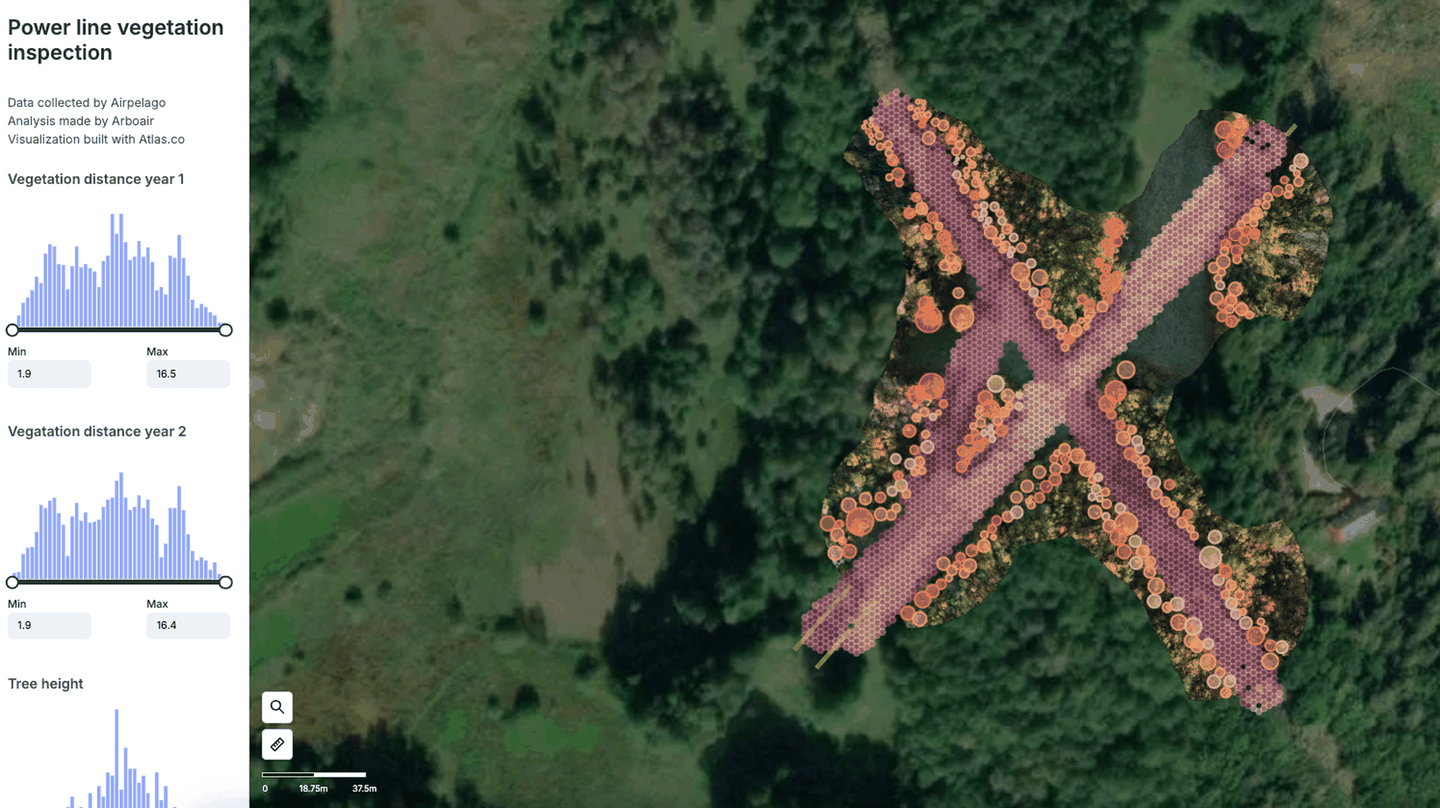
The silent threat of overgrown vegetation along our critical infrastructure networks—power lines, railways, and roads—poses a significant and costly challenge. For utility companies and infrastructure managers, traditional methods of vegetation management have long been a reactive and labor-intensive struggle. This manual approach, often involving ground crews and helicopters, is not only expensive and time-consuming but also fraught with safety risks. A fallen tree on a power line can lead to widespread outages, a branch obscuring a railway signal can have catastrophic consequences, and overgrown roadside vegetation can impair driver visibility and create hazards. The core of the problem lies in the difficulty of gaining a timely, accurate, and comprehensive overview of vast and often remote networks.
This is a reality many infrastructure managers know all too well. The constant cycle of inspections and maintenance is a drain on resources, and the inability to proactively identify and address high-risk areas means that problems are often dealt with only after an incident has occurred. This reactive stance is no longer sustainable in a world that demands ever-increasing reliability and safety from its essential services.
Imagine being able to predict where the next vegetation-related failure will occur before it happens. Envision a system that provides a detailed, tree-by-tree analysis of your entire infrastructure corridor, identifying potential threats with unparalleled precision. This is the paradigm shift that Arboair's AI-powered image analysis brings to vegetation management. By leveraging high-resolution imagery from drones, satellites, and aerial platforms, we transform a cumbersome manual process into a streamlined, data-driven strategy.
Our advanced AI models analyze this imagery to create a detailed digital twin of the infrastructure environment. This isn't just a map; it's a comprehensive database of every tree and vegetation segment along your corridors. We provide precise insights into:
To truly appreciate the level of detail and actionable insight our platform provides, we invite you to play with this live demo. It showcases how Arboair analysis data is used to visualize identified vegetation risks and tree risks along a power line corridor.
Adopting a data-driven approach to vegetation management with Arboair delivers a multitude of benefits, fundamentally changing how infrastructure is monitored and maintained.
Enhanced Safety: By removing the need for extensive manual inspections in often hazardous and hard-to-reach areas, the risk to ground personnel is significantly reduced. Proactively identifying and mitigating vegetation risks before they lead to failures also enhances public safety by preventing outages and accidents.
Significant Cost Reduction: The efficiency of drone data capture combined with automated AI analysis leads to substantial cost savings. One of the primary advantages is the reduction in reliance on expensive and carbon-intensive helicopter patrols. Furthermore, by moving to a predictive maintenance model, resources are focused on high-risk areas, eliminating unnecessary and costly blanket interventions. This targeted approach ensures that every dollar spent on vegetation management is maximized.
Increased Reliability and Resilience: With a comprehensive and regularly updated overview of your entire infrastructure network, you can significantly improve the reliability of your services. Early detection of potential threats allows for preventative action, reducing the frequency and duration of service interruptions. This proactive stance builds a more resilient infrastructure capable of withstanding environmental pressures.
Data-Driven Decision Making: Our platform provides the precise data needed to make informed decisions. From prioritizing maintenance activities to long-term planning and budgeting, our insights empower managers to optimize their resource allocation and operational efficiency. This level of detail also provides a clear and defensible basis for maintenance actions.
The future of infrastructure vegetation management is here. It is a future where we are no longer reacting to problems but proactively preventing them. By harnessing the power of drone technology and artificial intelligence, Arboair is providing the tools to build a safer, more reliable, and more resilient infrastructure for everyone.
To learn more about how Arboair can revolutionize your vegetation management strategy, contact us today to request a personalized demo.